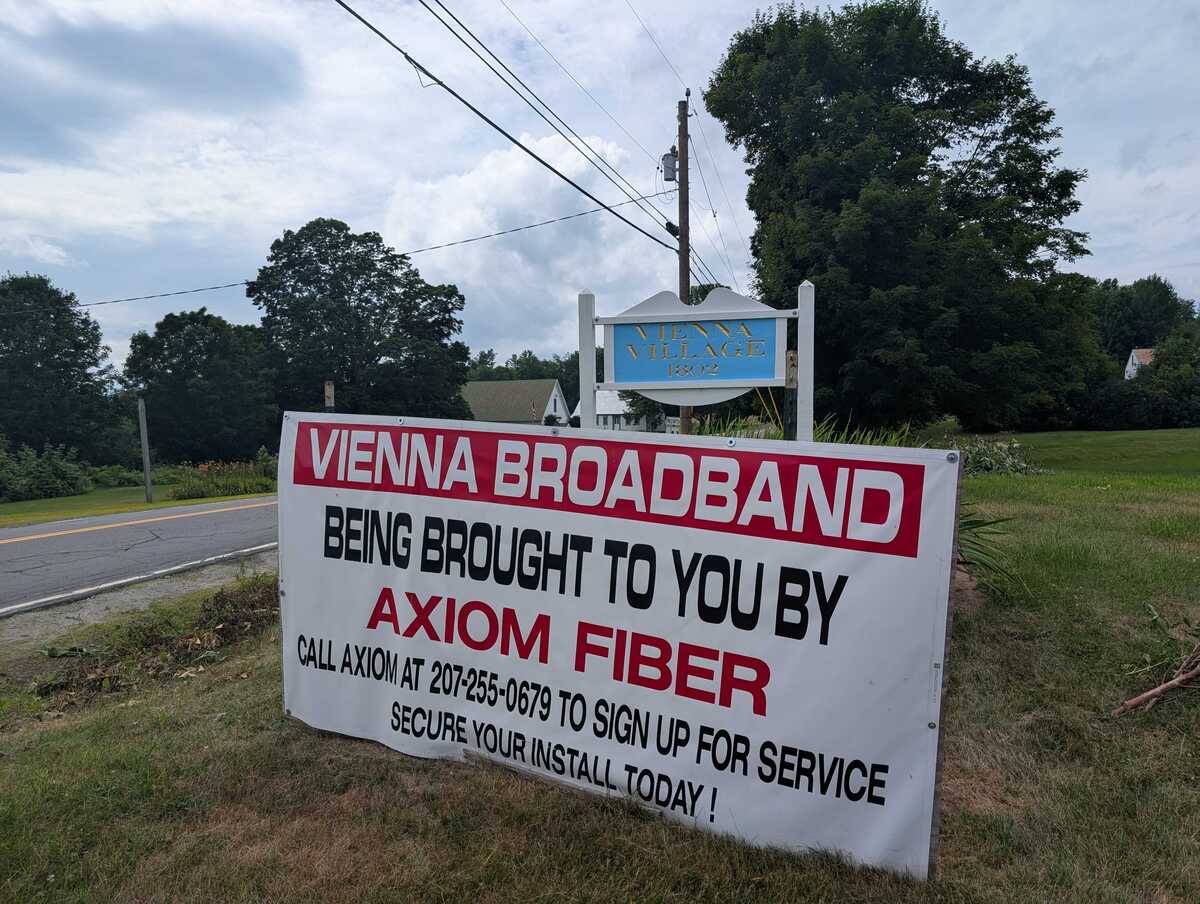After years of work, Vienna finally switched on its municipal broadband network. Now it’s telling people to go to the fire station to try it.
The small town in western Kennebec County has only about 600 residents. The Vienna Broadband Authority estimates that it needs 270 customers to reach financial viability. Only 240 of them have signed up so far, so the town is trying to convince more to switch.
“Boy, it’s fast,” Jim Anderberg, the broadband authority’s chair, said.
Vienna is an example of the many Maine cities and towns that are having challenges in the final stages of broadband expansions under the American Rescue Plan Act of 2021. Many of them started planning their networks only to face competition from incumbent providers that have since mounted expansion plans in their areas.
The project has its roots in a regional effort that stalled in 2022 when Readfield voters shot down a municipal network after $14,000 in advertising from a broadband industry group. Opponents warned that building new networks was a risk, but many towns went ahead.
One of them was Vienna, which pursued it in part because providers including Consolidated Communications, which operates as Fidium, declined to build high-speed service through the sparsely populated community and neighboring ones.
But Fidium eventually introduced its fiber service to parts of Vienna. Anderberg said over the summer that the company made it difficult for the new network to gain access to poles. The town is working with Machias-based Axiom, whose CEO said in July that his company would make a “strong case” for municipal ownership at a time of increased competition.
Fidium’s service is now available to a handful of Vienna residents at starting rates that will undercut the municipal prices. For the first year, Fidium offers customers an introductory rate of $30 a month, much lower than Axiom’s $60 monthly fee for the same internet speeds. After the first year, Fidium’s prices are typically around $50 monthly.
But Anderberg is trying to sell the homespun service to his neighbors, likening it to purchasing books from a local bookstore rather than Amazon.
“Maybe you pay more but you’re helping out the local economy,” he said.
The rollout of service in Vienna will come slowly. About 50 customers will be hooked up in a month or so, Anderberg said. The rest of them should have access by late fall.
Vienna Selectman Dave Castles has not been directly involved with the broadband authority, which officially stands apart from local government. Wires have already been hooked up to his house, though his service has not yet been activated. But he is impressed by the sign-up rate considering the size and median age of the town.
“You have a lot of people that are still using … landlines,” he said.
Daniel O’Connor is a Report for America corps member who covers rural politics as part of the partnership between the Bangor Daily News and The Maine Monitor, with additional support from BDN and Monitor readers.

